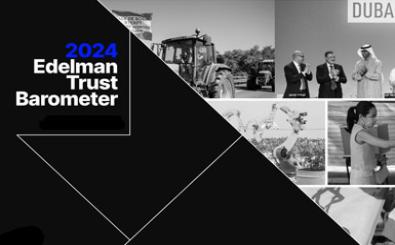In the next few years, Latinos will comprise 40 percent of the growth in the U.S. workforce, according to HIS, presenting businesses and government alike with enormous opportunities and new challenges.
A growing number of companies recognize they must adapt to this rapidly growing demographic and create more diverse workforces. At Edelman, for instance, the racial and ethnic diversity of the U.S. staff increased to 26 percent from 24 percent in less than a year as a result of focused recruitment and retention efforts, according to Russell Dubner, president and CEO of Edelman U.S.
Edelman is on track to achieve its goal of 30 percent racial and ethnic diversity in five years with the creation of employee networks such as Inclusivo, Edelman’s Latino resource group. As a founding member and co-leader of Inclusivo’s Chicago chapter, I recently participated in the fall 2018 Leadership Academy presented by the Hispanic Alliance for Career Enhancement (HACE), thanks to Edelman’s sponsorship. It underscores the agency’s commitment to nurturing professional growth in diverse employees.
The 10-week leadership development program addressed the unique cultural values and challenges for Latino professionals, and it explored several leadership elements, including meeting and conflict management; strategic planning and communication; presentation skills; and trust-building. Participants ranged from junior to executive levels at a wide range of companies spanning finance, insurance, travel, retail and other industries.
How do culturally diverse backgrounds impact how we approach conflict? Often, we have the most difficulty understanding and interacting with those whose preferences differ from our own. During the program, for instance, I gained a better understanding of how to leverage my background to be an effective leader who inspires others. I applied a new framework to help me identify areas that I can develop and gain personal and professional growth.
The program included a group project in which participants were divided into teams and challenged to incorporate program learnings to a specific topic. My team researched and culled recommendations for how companies can create an environment that fosters Latino advancement in the workplace. From our primary research, we learned that feeling undermined or held back as a Latino employee varies depending on the job level. For the junior level, it’s about breaking through the hierarchy and building enough credibility to get one’s voice heard. For the executive level, it’s about advancing past the level that leadership thinks you have already achieved. Overall, it boils down to attracting the right talent, developing employees toward a path to promotion and ensuring retention.
I enjoyed learning from other diverse experiences during each session and applying skills I have gained at Edelman in a new and different setting. I am motivated to translate this knowledge into my professional career and offer new strategies, ideas and different perspectives to Edelman. This includes continued support of Edelman’s diversity and inclusion efforts, expansion of Inclusivo’s programming and driving significant impact in the recruitment, retention and advancement of diverse talent.
Fernando Agudelo is an account executive in the Corporate Affairs practice in Chicago.





